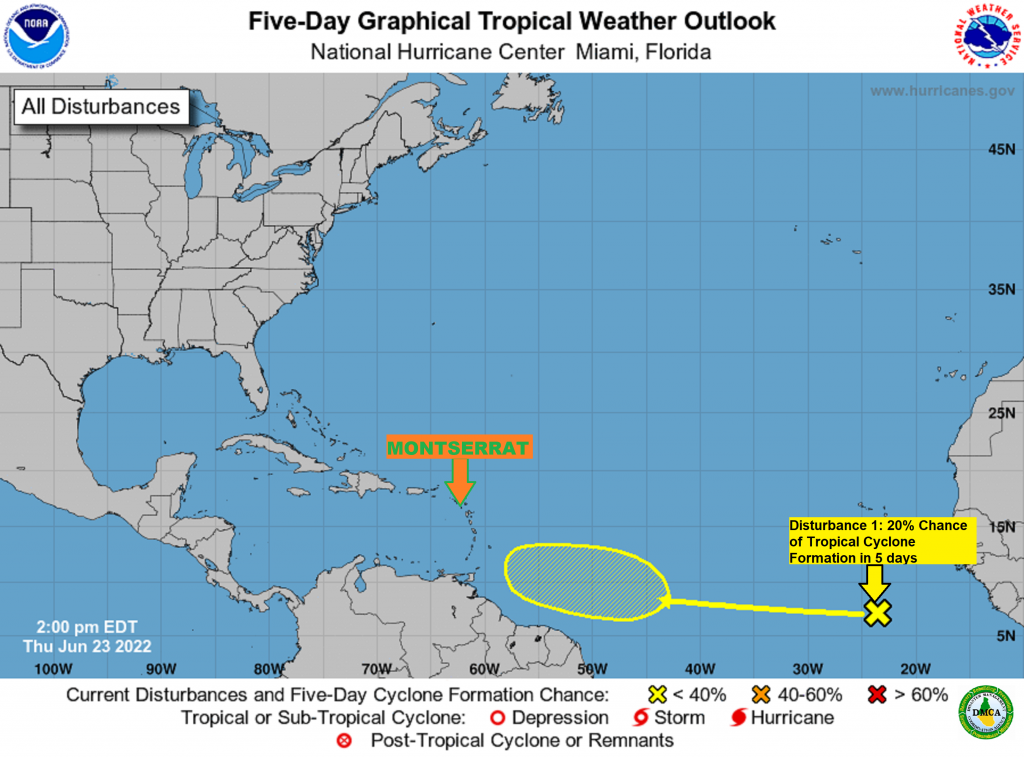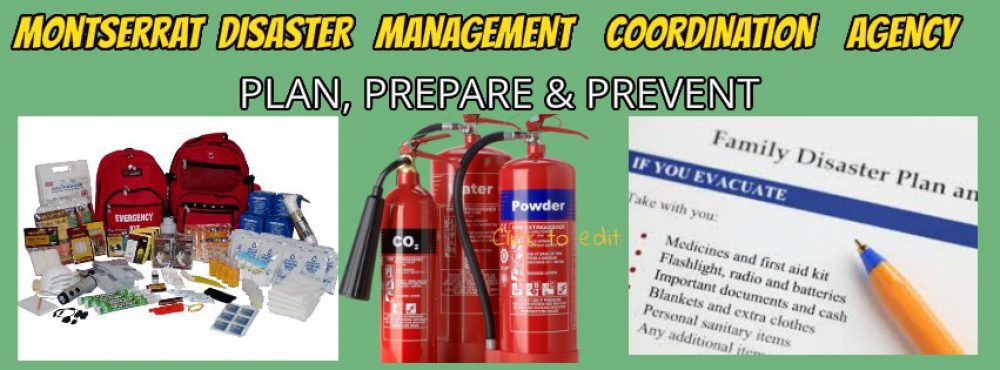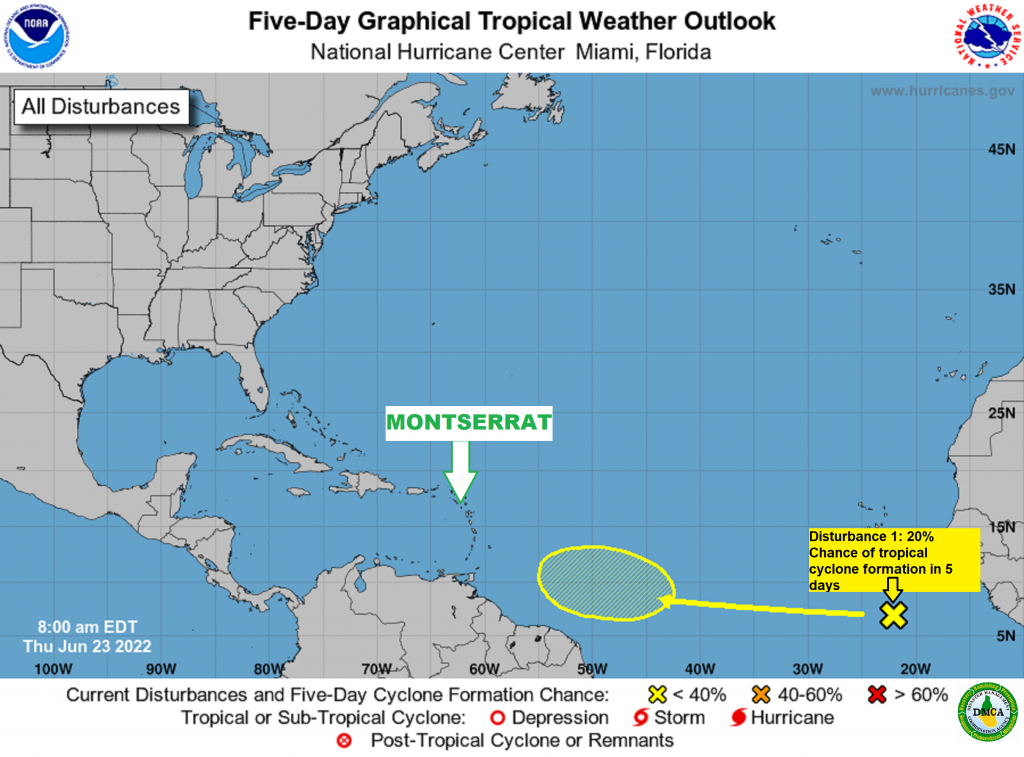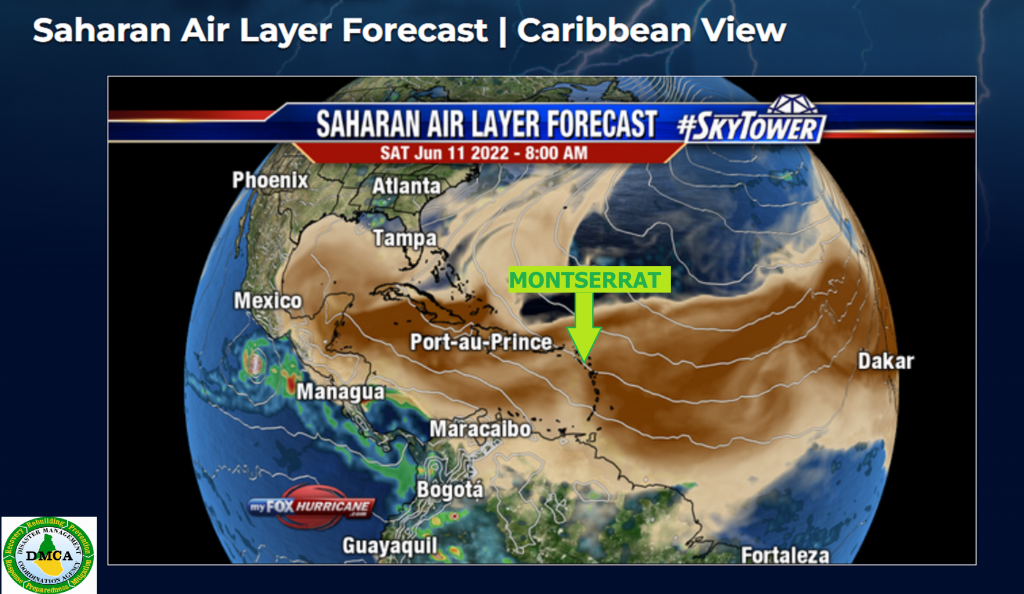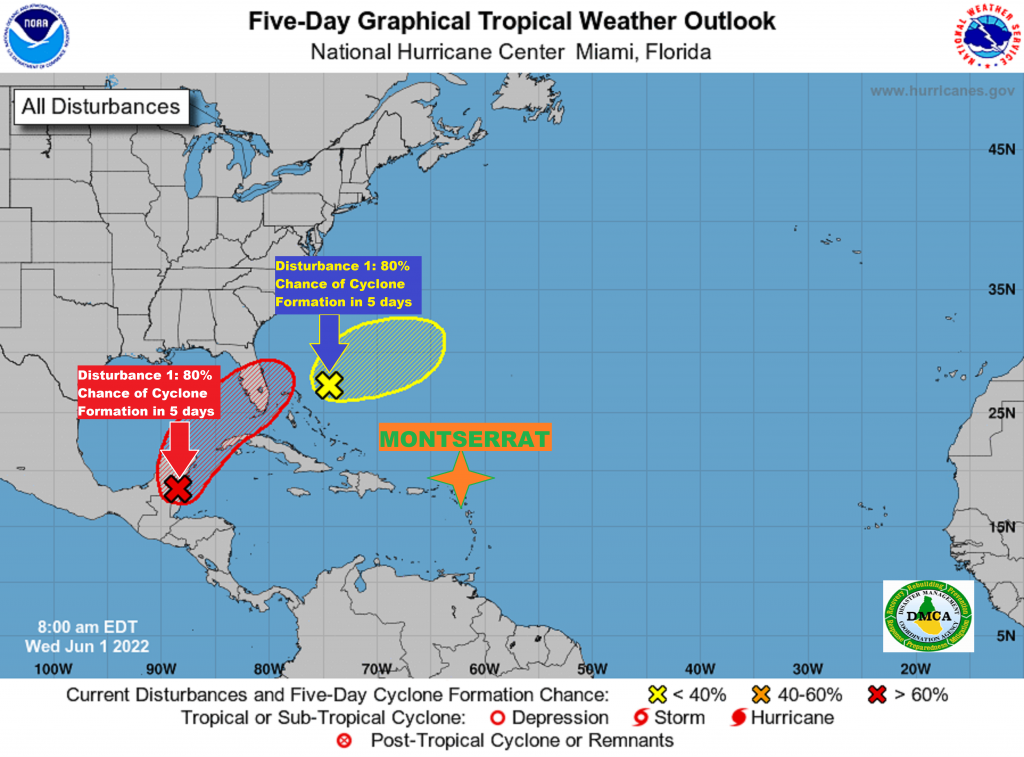According to an Air Quality Bulletin issued by the Antigua and Barbuda Meteorological Services, the threat of health problems is elevated for mainly unusually sensitive people, such as asthmatics and could potentially cause them limited health impacts.
Active children and adults, and people with heart and respiratory diseases such as asthma, should limit prolonged outdoor exertion or restrict outdoor activity.
The Disaster Management Coordination Agency (DMCA) is advising residents who are unusually sensitive to dust particles to remain extra vigilant during this period particularly, those with respiratory issues such as asthma and, keep windows and doors closed as much as possible.
The DMCA is further advising residents to limit dust entering their system as best as possible by using masks and protective eyewear. Any masks that filter small particles should be worn such as a surgical mask, N95 and KN95 when going outside.
Air Quality Index Based on Particulate Matters 2.5 (PM2.5) and 10 (PM10) Concentration
Air quality category: Moderate
Location: Montserrat
Timing: Saturday afternoon until Tuesday
Air quality index: 50 to 80
Alert Level: II
Sensitive groups: People with respiratory or heart disease, the elderly and children are the groups most at risk.
Health implications: Air quality is acceptable; however, for some pollutants, there may be moderate health concerns for a very small number of people who are unusually sensitive to air pollution.
Saharan dust is a mixture of sand and dust from the Sahara, the vast desert area covering most of North Africa. Once it is lifted from the ground by strong winds, clouds of dust can reach very high altitudes and be transported worldwide, covering thousands of miles.
Saharan dust activity typically ramps in mid-June, peaks between late June and mid-August, and then quickly subsides after mid-August.
